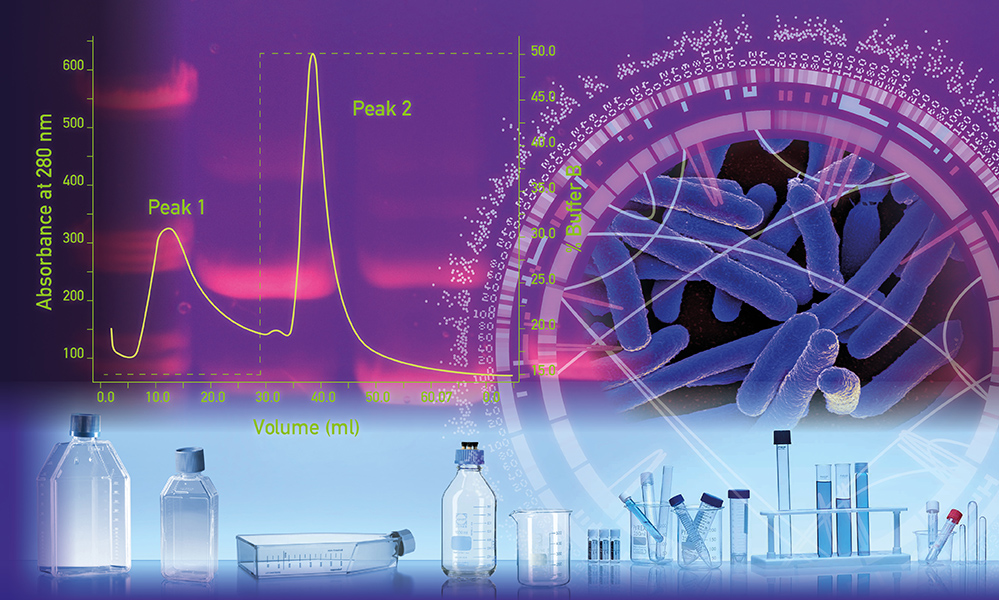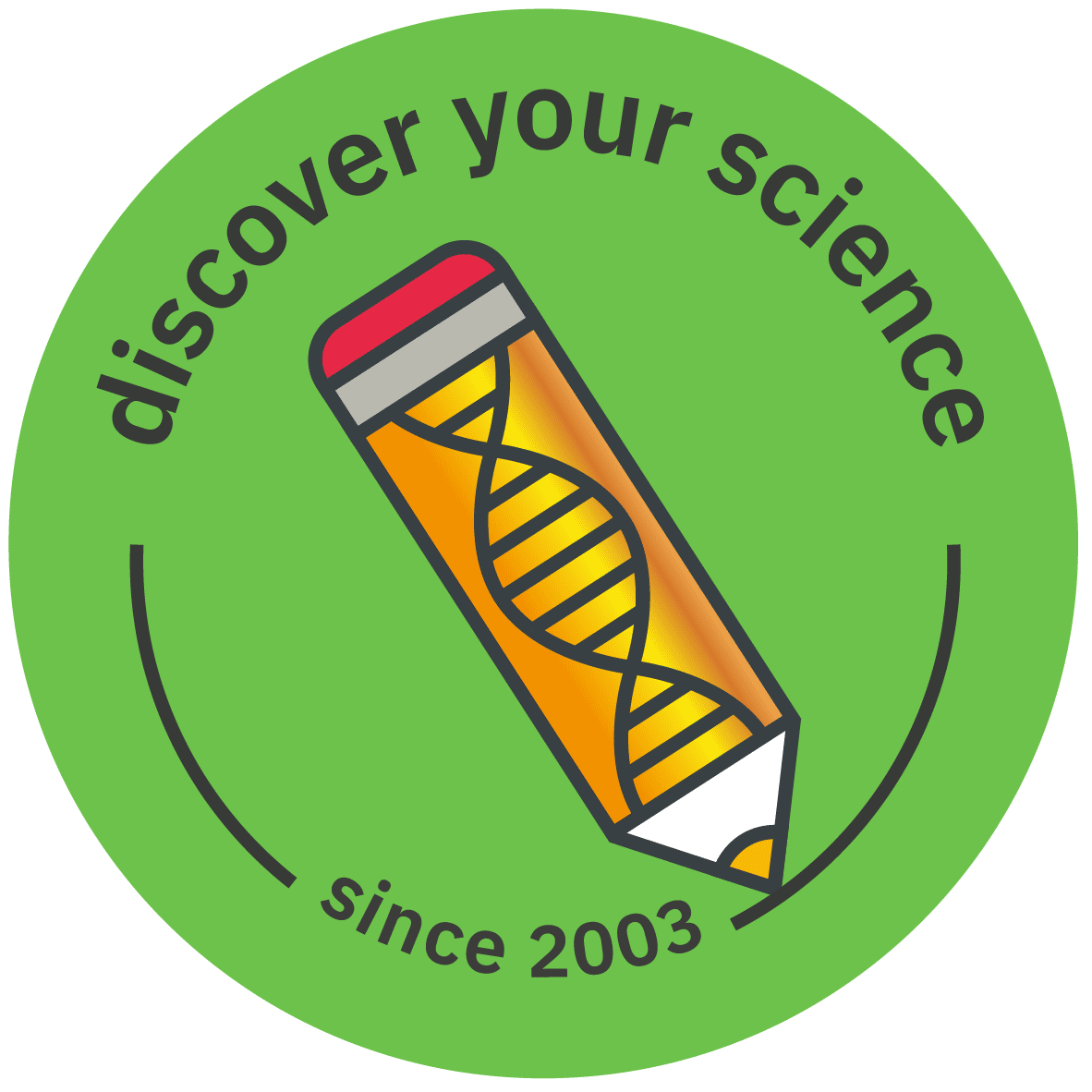Molecular biology techniques, spring 2021
- Overview
- Course organiser
- Learning formats & assignments
- Unconference: “Science is connection”
- Requirements & Application
- Course schedule
Overview
The application and development of molecular biology techniques and methodologies are key to new discoveries in the life sciences. EMBL’s European Learning Laboratory for the Life Sciences invites secondary school science teachers to explore this essential area of biological research in a virtual training course this spring entitled ‘Taking a fresh look: teaching molecular biology techniques in the classroom’. The course is free of charge and the workload is designed to fit around a busy teacher’s schedule. The course runs over three weeks from 12 April to 2 May 2021. The course language is English.
This professional training course for secondary school science teachers provides insights into the key molecular biology techniques used in modern life sciences research and discusses their teaching in the classroom.
The three week course consists of a mix of individual learning and interactive live sessions. The workload across the course is estimated to be 15 hours, covering 4-6 hours each week.
In week 1, participants will receive an up to date introduction to molecular biology techniques. This focuses on the step-by-step journey of producing recombinant proteins in the laboratory, which involves techniques such as PCR, DNA cloning, and protein expression and purification. Scientists will share insights on how these procedures are carried out in a modern biology research laboratory, share current developments, and discuss their applications and impact on discoveries in the life sciences.
Week 2 will provide participants with the opportunity to explore a brand new non-laboratory, hands-on, virtual learning resource which can be directly applied in the classroom to teach aspects of molecular biology techniques.
Week 3 will focus on networking and discussing teaching practices with fellow course participants as well as scientists. Participants will have the opportunity to shape the content of a two-evening mini unconference on teaching molecular biology techniques in secondary school. Contributions may be made in the form of flash presentations of teaching resources, moderating group discussions or suggesting discussion topics.
By the end of the course, participants will
- expand their understanding of key molecular biology techniques used in current life sciences research
- appreciate the application of those techniques in basic research and beyond
- be familiar with a new non-laboratory, hands-on, virtual learning resource on molecular biology techniques which can be directly applied in the classroom
Moreover, the course gives participants the opportunity to:
- connect to active researchers in the field
- expand their sources of teaching materials for teaching molecular biology techniques in secondary school
- exchange teaching materials and discuss teaching practices as well as opportunities and challenges in teaching molecular biology methodologies in the classroom with teachers and scientists from across the world
- expand their network of international teachers and science educators
Course organiser
The training course is organised by the European Learning Laboratory of EMBL (EMBL-ELLS) and supported by Merck.
European Learning Laboratory of EMBL (EMBL-ELLS)
The European Learning Laboratory for the Life Sciences (EMBL-ELLS) is EMBL‘s education facility, which aims to bridge the gap between research and schools. Multifaceted training activities and programmes allow European teachers and secondary school students to experience modern life sciences. They gain access to cutting-edge scientific research and get to know the people inside the laboratories. Besides continued professional development courses for teachers and the development of teaching resources, our activities include the EMBL School Ambassador Programme, projects with local schools as well as the school group visits‘ programme at EMBL. Visit our website for further information about our activities: http://emblog.embl.de/ells/

The Life Science business of Merck which operates as MilliporeSigma in the U.S. and Canada, has more than 22,000 employees and 59 manufacturing sites worldwide, with a portfolio of more than 300,000 products focused on scientific discovery, biomanufacturing and testing services. Our purpose is to spark curiosity in the next generation to solve the toughest problems in life science by collaborating with the global scientific community – and through that, we aim to accelerate access to better health for people everywhere.
Learning formats & assignments
The course will take place online and will be taught through e-lectures, live Q&A sessions, reading material and online exercises, and an unconference.
The course is mainly designed to be self-paced. However, the course features several live session (see course schedule) where participants meet researchers, course organisers and other participants. Recordings of the live sessions will be made available to participants after the session for the duration of the course.
The workload for completing the compulsory learning content is between 4-6 hours per week. The content in each week comprises of compulsory and additional content that is optional. To be eligible for a certificate of attendance, participants must have submitted the required compulsory assignments by Sunday of the week following the course (9 May 2021).
Unconference: “Science is connection”
Please indicate the ways you would like to contribute to the virtual mini unconference below.
The unconference will take place on 29 and 30 April 2021, 18:00- 20:30 (CET) on both dates (TBC), on Zoom, and comprises of:
- Presentation sessions featuring a set of flash talks on teaching molecular biology methodology practices;
- Discussion sessions on various topics of interest related to approaches and challenges in teaching molecular biology techniques in the classroom.
Participant contribution:
Everyone is encouraged to submit topics of interest to be discussed during the unconference. Discussion topics should focus on “teaching molecular biology in the classroom” and could include, for example, best practices of teaching practical aspects of molecular biology in a virtual setting, or challenges in linking theory with practice in molecula biology. Any topic you would like to discuss with an international community of teachers and scientists is welcome. You will have space in the application form to submit your favourite topics.
You also have the option to actively contribute to the event by giving a talk or becoming a discussion session moderator. For both of these positions, we will provide further guidance and support. Needless to say, your contribution and time commitment will be depicted in a separate certificate. You can indicate your interest in the application form and submit a short summary of your proposed presentation.
Moderator:
As a discussion moderator, you should be a good communicator who can encourage all participants to share their thoughts and listen to others’ comments. During the session, you should ensure respectful communication and create a natural atmosphere of mutual respect and trust. Taking notes on key questions and trends raised during those sessions is desired.
Flash talk speaker:
If you would like to present material and resources that you use in class to teach key molecular biology techniques and share your experience with your colleagues, you could give a short 10-minute talk during our presentation sessions. To allow careful pre-selection, we kindly ask you to submit a short abstract on your presentation (max. 200 words). You will have the opportunity to do that directly in the application form or after you have submitted your application form using the abstract submission form no later than 28 March 2021. As soon as your talk is selected you will be notified to ensure enough time for preparation. We will also provide you with a slides template.
Requirements & Application
Requirements and certificates
Please note that we recommend a minimum English language level of B2 according to the Common European Framework of Reference for Languages in order to successfully complete the course. Please consult this self-assessment chart if you are unsure about your language skills.
The course will take place on a Moodle-based e-learning platform and the Zoom meeting tool. To access the course, participants will need to have access to a computer with internet connection. To take part in the interactive live sessions on Zoom, participants should have an audio connection as well as camera.
Participants receive a certificate of attendance upon completion of the course. To be eligible for a certificate participants must have submitted the required compulsory assignments by Sunday of the week following the course.
Participants who present or moderate at the unconference will receive an additional certificate confirming their contribution.
Cancellation fees
As we anticipate the ELLS virtual LearningLAB to be very popular, we ask participants to only apply if they are certain that they can attend the module they signed up for, or the full duration of the course, respectively. In case you find yourself unable to attend after having received our confirmation email, please notify us as soon as possible by email but no later than 14 days before the start of the course, so we can give your place to somebody on the waiting list.
Please note that cancellations and non-attendance might jeopardise the viability of the course for other participants, and we may charge a course cancellation fee.
Application
Please ensure that you have read all course information before applying and are confident that you can attend if your application is successful.
You will need to submit a short motivational statement (max. 300 words) in the application form. In addition, the application form will collect information regarding the unconference. There will be space for submitting suggestions for discussion topics which should be addressed during the unconference. You can also indicate whether you would like to act as moderator during the unconference. If you are interested in presenting a teaching or learning resource related to molecular biology techniques in a flash talk, you will have the opportunity to submit a short abstract of the resource as part of the application form or at a later date via the abstract submission form (deadline: 31 March 2021). Please note that we cannot guarantee a presenter/moderator spot and applicants for unconference contributions will be selected based on their application/submitted abstract.
Please note, applications have now closed! To stay tuned for upcoming trainings, subscribe to our newsletter!
Course schedule
The preliminary course schedule may be downloaded here:
The schedule contains information about the tentative timings of the course, course content, learning formats and estimated workload.

